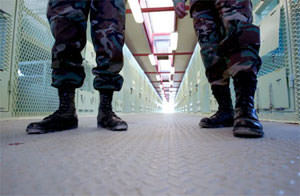What Torture Never Told Us
Many intelligence professionals have categorically disapproved of torture, claiming it both ineffective and counterproductive. Former FBI agent Ali H. Soufan writes of the mountains of good information uncovered with traditional interrogation procedures in contrast to the erroneous and unproductive intelligence gleaned from torture.
Many intelligence professionals have categorically disapproved of torture, claiming it both ineffective and counterproductive. Former FBI agent Ali H. Soufan writes of the mountains of good information uncovered with traditional interrogation procedures in contrast to the erroneous and unproductive intelligence gleaned from torture. — J.C.
Your support matters…The New York Times:
Pulic bravado aside, the defenders of the so-called enhanced interrogation techniques are fast running out of classified documents to hide behind. The three that were released recently by the C.I.A. — the 2004 report by the inspector general and two memos from 2004 and 2005 on intelligence gained from detainees — fail to show that the techniques stopped even a single imminent threat of terrorism.
The inspector general’s report distinguishes between intelligence gained from regular interrogation and from the harsher methods, which culminate in waterboarding. While the former produces useful intelligence, according to the report, the latter “is a more subjective process and not without concern.” And the information in the two memos reinforces this differentiation.
They show that substantial intelligence was gained from pocket litter (materials found on detainees when they were captured), from playing detainees against one another and from detainees freely giving up information that they assumed their questioners already knew. A computer seized in March 2003 from a Qaeda operative for example, listed names of Qaeda members and money they were to receive.
Independent journalism is under threat and overshadowed by heavily funded mainstream media.
You can help level the playing field. Become a member.
Your tax-deductible contribution keeps us digging beneath the headlines to give you thought-provoking, investigative reporting and analysis that unearths what's really happening- without compromise.
Give today to support our courageous, independent journalists.






You need to be a supporter to comment.
There are currently no responses to this article.
Be the first to respond.